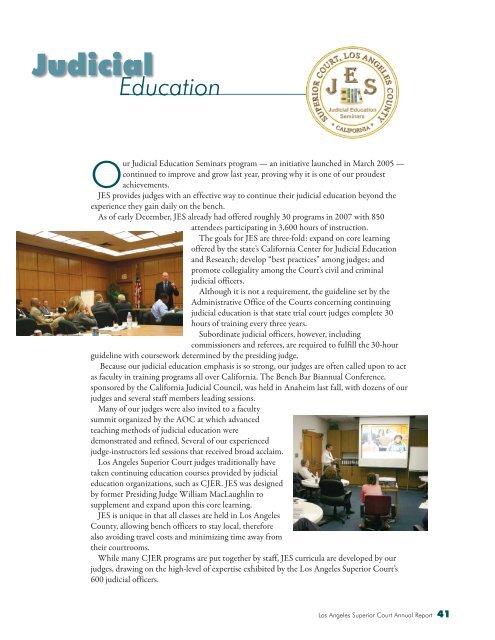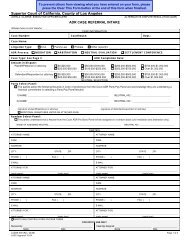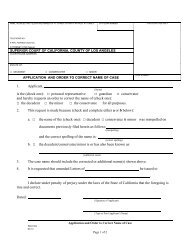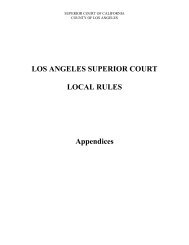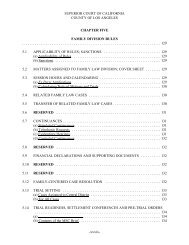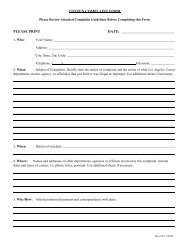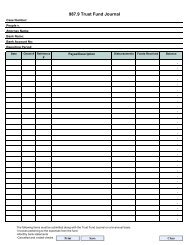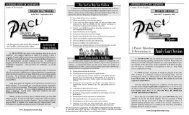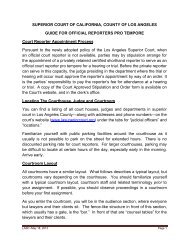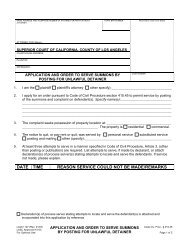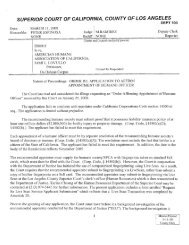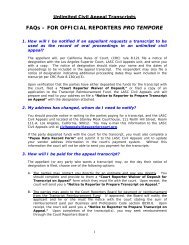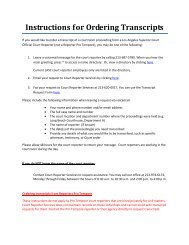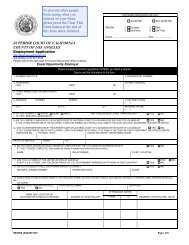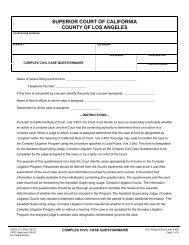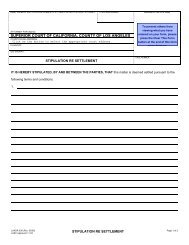2008 Annual Report - Superior Court of California - County of Los ...
2008 Annual Report - Superior Court of California - County of Los ...
2008 Annual Report - Superior Court of California - County of Los ...
You also want an ePaper? Increase the reach of your titles
YUMPU automatically turns print PDFs into web optimized ePapers that Google loves.
Judicial<br />
Education<br />
Our Judicial Education Seminars program — an initiative launched in March 2005 —<br />
continued to improve and grow last year, proving why it is one <strong>of</strong> our proudest<br />
achievements.<br />
JES provides judges with an effective way to continue their judicial education beyond the<br />
experience they gain daily on the bench.<br />
As <strong>of</strong> early December, JES already had <strong>of</strong>fered roughly 30 programs in 2007 with 850<br />
attendees participating in 3,600 hours <strong>of</strong> instruction.<br />
The goals for JES are three-fold: expand on core learning<br />
<strong>of</strong>fered by the state’s <strong>California</strong> Center for Judicial Education<br />
and Research; develop “best practices” among judges; and<br />
promote collegiality among the <strong>Court</strong>’s civil and criminal<br />
judicial <strong>of</strong>ficers.<br />
Although it is not a requirement, the guideline set by the<br />
Administrative Office <strong>of</strong> the <strong>Court</strong>s concerning continuing<br />
judicial education is that state trial court judges complete 30<br />
hours <strong>of</strong> training every three years.<br />
Subordinate judicial <strong>of</strong>ficers, however, including<br />
commissioners and referees, are required to fulfill the 30-hour<br />
guideline with coursework determined by the presiding judge.<br />
Because our judicial education emphasis is so strong, our judges are <strong>of</strong>ten called upon to act<br />
as faculty in training programs all over <strong>California</strong>. The Bench Bar Biannual Conference,<br />
sponsored by the <strong>California</strong> Judicial Council, was held in Anaheim last fall, with dozens <strong>of</strong> our<br />
judges and several staff members leading sessions.<br />
Many <strong>of</strong> our judges were also invited to a faculty<br />
summit organized by the AOC at which advanced<br />
teaching methods <strong>of</strong> judicial education were<br />
demonstrated and refined. Several <strong>of</strong> our experienced<br />
judge-instructors led sessions that received broad acclaim.<br />
<strong>Los</strong> Angeles <strong>Superior</strong> <strong>Court</strong> judges traditionally have<br />
taken continuing education courses provided by judicial<br />
education organizations, such as CJER. JES was designed<br />
by former Presiding Judge William MacLaughlin to<br />
supplement and expand upon this core learning.<br />
JES is unique in that all classes are held in <strong>Los</strong> Angeles<br />
<strong>County</strong>, allowing bench <strong>of</strong>ficers to stay local, therefore<br />
also avoiding travel costs and minimizing time away from<br />
their courtrooms.<br />
While many CJER programs are put together by staff, JES curricula are developed by our<br />
judges, drawing on the high-level <strong>of</strong> expertise exhibited by the <strong>Los</strong> Angeles <strong>Superior</strong> <strong>Court</strong>’s<br />
600 judicial <strong>of</strong>ficers.<br />
<strong>Los</strong> Angeles <strong>Superior</strong> <strong>Court</strong> <strong>Annual</strong> <strong>Report</strong> 41


